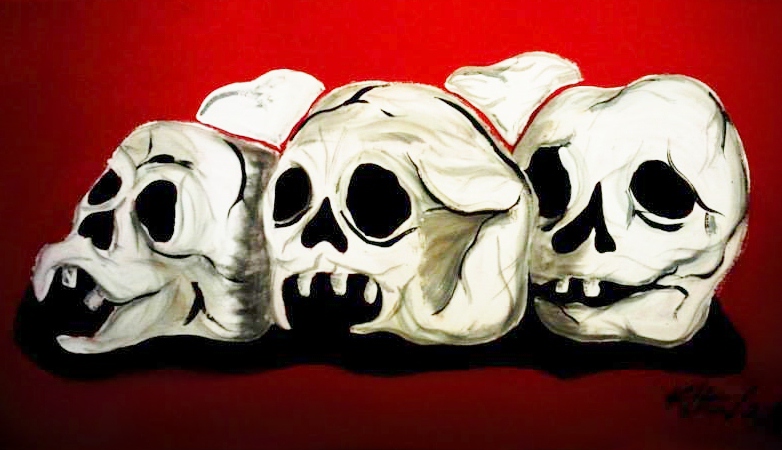This week the text of the UN Human Rights Council resolution on Sri Lanka will be finalised and voted on by member states. Amid the intense deliberations of the past weeks in Geneva, the crux of the problem in the island has been laid bare. Even as diplomatic missions, international NGOs, numerous Tamil actors and some Sinhala ones have campaigned for mandating an international independent investigation into Sri Lanka’s wartime atrocities and ongoing abuses, the arguments of those calling for a more tolerant and accommodative approach have been thoroughly discredited by Colombo’s own conduct: not only has the government rejected out of hand calls for accountability for some of the worst atrocities of the century, it has, in a direct snub to the UNHRC, intensified its repression and terrorising of the Tamil people.
The primacy and urgency of an international investigation is beyond question. What is key now, however, is the robustness of such an inquiry. The effort to broaden international support cannot entail (further) compromise. Beyond securing the necessary majority, seeking to placate states which begrudgingly supported past resolutions – when, in fact, they should have been trailblazing - is both futile and counterproductive. Any inquiry that lacks the necessary mandate, and is hamstrung in terms of scope, time frame and available expertise, not only fails the victims of past and ongoing abuses, but will further embolden an already defiant Sri Lanka by assuring impunity from international sanction.
As we argued last week, Sri Lanka’s deliberate and pointed intensification of its repression in recent weeks highlights key weaknesses in the current draft of the resolution, namely its inability to provide any immediate relief for the Tamil people or to ensure an environment conducive to an international investigation and evidence gathering. The key problems, amply demonstrated in the past weeks themselves, are the – aggressively increased – militarisation of the Tamil areas, lack of any protection for witnesses and human rights defenders, and the terrifying powers of the Prevention of Terrorism Act.
For these reasons, and given the gravity of the wartime atrocities and the abuses since, the present draft of the UNHRC resolution is a clear compromise in the interest of securing multilateral support, something all those campaigning for accountability recognise. However for the Tamils, who have been and continue to be the primary targets of Sri Lanka’s violence, the price of this compromise is severe. Thus, whilst Tamils are collectively strongly supportive of the push for an international investigation, as voices from the North-East and diaspora have again reiterated over recent days, the current resolution nonetheless falls short of their needs and expectations: that it would provide immediate and meaningful protection from the Sri Lankan state, acknowledge the ethnicised thrust of its past and ongoing violence, and thus take seriously the charge of genocide.
It follows that this nuanced and qualified criticism of the resolution, as well as calls for international action, emanate loudest and most forcefully from those in the North-East. In demanding justice, there is no more legitimate a voice than that of the victims. It is outrageous that some have sought in recent days to dismiss and silence expressions of the prevailing sentiment of the Tamil people and, moreover, to claim – quite preposterously – that such criticism of the resolution gives rise to perceptions of divisions amongst Tamils, which would sabotage its passing. It is deplorable that leading figures from the Tamil National Alliance, a party elected to represent the will of the Tamil people, and a handful of international and Sinhala human rights activists, are principle parties to these disingenuous claims.
These cynical and misguided efforts to portray the Tamils as divided, something long inherent to the state’s repression itself, denies the fast widening gulf between the Tamil and Sinhala nations. Whilst the Tamils are intensely focused on how to strengthen the resolution, the Sinhala polity competes over who has fought most valiantly against it. As Tamils demonstrate in large numbers that the resolution does not go far enough, Sinhalese oppose it as unwarranted foreign interference. These discourses over accountability, the state’s conduct and the UNHRC resolution itself lay bare the fiction of post-war reconciliation: on the one side are the victims of the state’s repression and mass atrocities, and on the other are the forces of majoritarianism that support both the state's violence and its defiance of international law and norms. As the resolution is finalised and voted on this week, the stakes go well beyond delivering long overdue justice to the victims of state violence; what is in the balance are both the possibility of stability and peace in the island, on the one hand, and, the relevance of international humanitarian and human rights law, on the other.
 |
